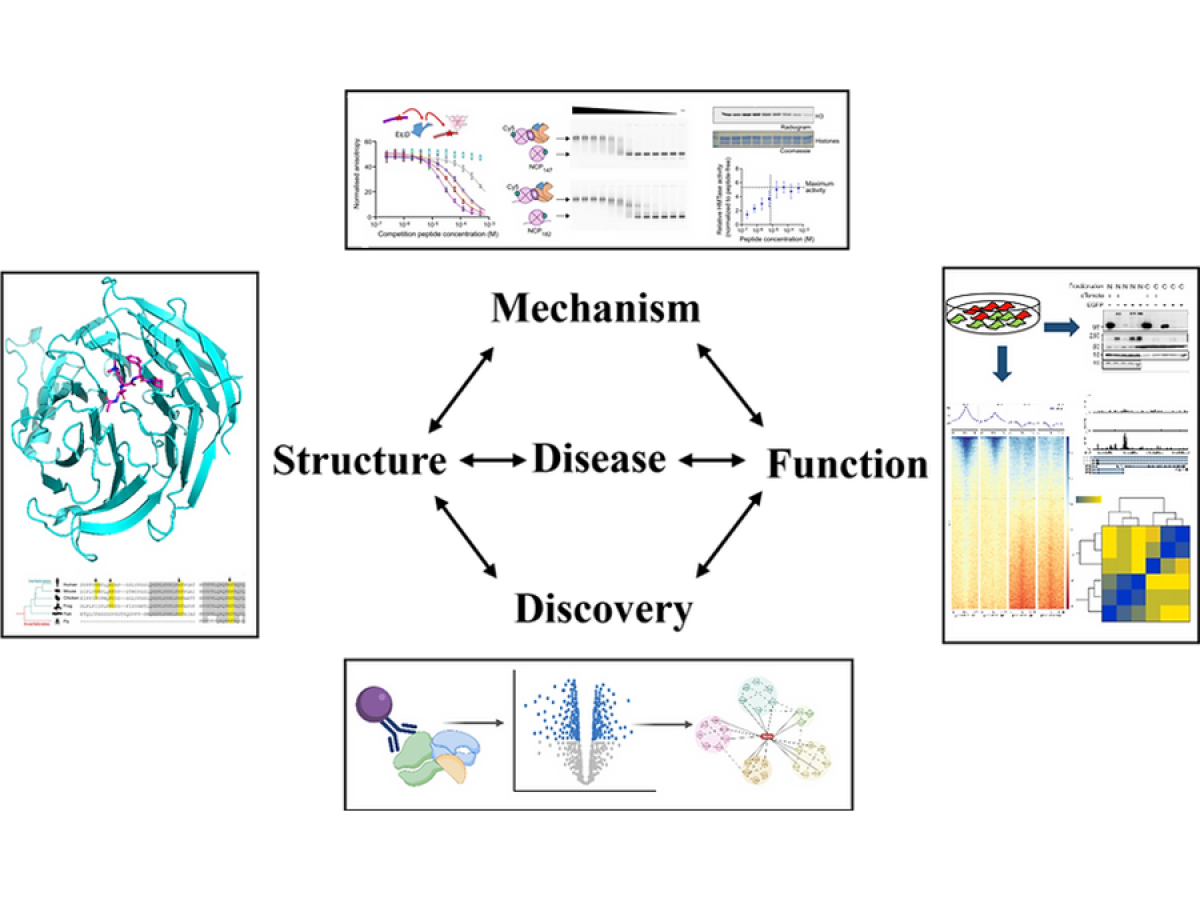Zhang Lab: Epigenetics & Gene Regulation
Our research
Despite all cells in a multicellular organism sharing identical DNA sequences, their cellular identities are determined by epigenetic processes. The dysregulation of these processes plays a crucial role in pathologies, including cancer and developmental disorders.
Our main research interest is to understand how epigenetic regulation governs gene expression at the molecular level, with a focus on the role of chromatin-modifying enzymes. These enzymes can introduce post-translational modifications to chromatin, thereby altering its structure and function, which in turn regulates DNA accessibility and gene expression. Notably, these enzymes typically form multi-subunit protein complexes, and their enzymatic activity and recruitment to chromatin are modulated by cofactors such as DNA, RNA or proteins.
Our research focuses on addressing several key questions:
- How are multi-subunit chromatin-modifying complexes assembled?
- How are chromatin-modifying enzymes modulated by their cofactors?
- How do chromatin-modifying complexes regulate gene expression and how do they become dysregulated in cancer?

Highlighted papers
- Healy E*, Zhang Q*, Gail EH, Agius SC, Sun G, Bullen M, Pandey V, Das PP, Polo JM, Davidovich C. The apparent loss of PRC2 chromatin occupancy as an artefact of RNA depletion. Cell Rep. 2024 doi: 10.1016/j.celrep.2024.113858
- Deevy O, Monger C, Matra F, Tuck E, Conway E, Rodighiero S, Zhang Q, Davidovich C, Pasini D, Bracken AP. Dominant negative and directional dysregulation of Polycomb function in EZH2-mutant human growth disorders. bioRxiv. 2023 doi: 10.1101/2023.06.01.543208
- Zhang Q*, Agius SC*, Flanigan SF, Uckelmann M, Levina L, Owen BM, Davidovich C. PALI1 facilitates DNA and nucleosome binding by PRC2 and triggers an allosteric activation of catalysis. Nature Comm. 2021. doi: 10.1038/s41467-021-24866-3. PMID: 34321472
- Zhang Q*, McKenzie NJ*, Warneford-Thomson R*, Gail EH, Flanigan FF, Owen BM, Lauman R, Levina V, Garcia BA, Schittenhelm RB, Bonasio R, Davidovich C. RNA exploits an exposed regulatory site to inhibit the enzymatic activity of PRC2. Nature Struct Mol Biol. 2019. doi: 10.1038/s41594-019-0197-y. PMID: 30833789
